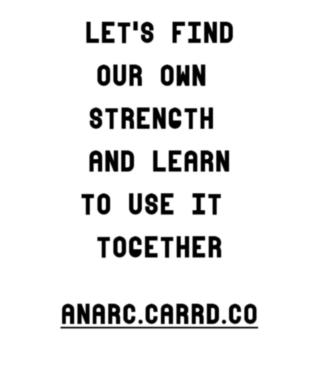anarchism
A human overview
The Problem Right Now
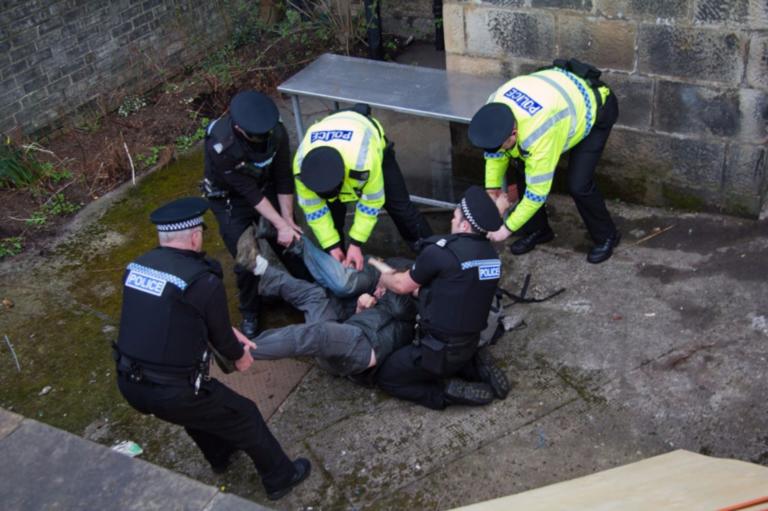
Fear and the theft of our self-confidence rules over us
Many people are convinced of freedom and stability in the ways things are right now, or at least complacent (but certainly not content) in the boundaries imposed on their potential. Every person has a sense of this abuse, but can't always put it into words. And even when there really is a moment of realization, not all grievances are treated equal. There is always some standard of "oppression" that ruling powers demand be met, otherwise we're simply "asking for too much."
Those who suffer on different poles are consistently put below those afforded privileges because of their skin color, gender or class position. This isn't always a conscious wrongdoing of their own, but a matter of society imposing and socializing these imbalances routinely.
Nearly everything set in stone, on paper or endemic of our unthinking behaviors works against us all. The ritual desperation of rent and debt. The hours wasted at the jobs we detest. The creativity lost because it wasn't exploitable. The imprisonment of those acting out at oppression. The women shamed into silence over their abuse. The men shamed into suppressing their emotions. The dejected working family in perpetual captivity to the state and capitalism.
At the root of all these and more, they're so far detached from any hope of reform that simply entertaining the idea is insulting. Authority — political, economic and social, has cast the world's greatest net onto all our needs and prospects, while coercion has waved the consequences of wanting better in our faces. All these comprise social hierarchy, the outline of subordination that is responsible for every piece of this decaying, fearful existence.
The Solution That Is Ours

A simple, instinctual ethic is our way toward a sense of self-control on every scale
If there was a direct connection between individuals and the things in the world, not just a tangle of anxious frenzies that accomplish the bare minimum, our basic inputs would have incredible impact. Our closest relationships would form the parts of society that matter most. Our shared interests would accomplish wonders. Our safety and wellness would be secured by others' desire to have it in return.
If we pull out all the stops and put an end to the hollow requirements of a world rooted in monetary value, constraining roles and disciplinary measures, possibilities would only be limited by what boundaries we set for ourselves.
We know how to run our own lives, its just a matter of building effective capacity and getting in touch with our own power. If we as individuals in non-hierarchical, free associations would directly translate our insights into paths and procedures that do what we really want them to, the world would become less like a series of formless strains and more like a hub of diverse experiences that is actually our own.
What we are talking about is dramatically reinventing life. We are talking about anarchism.
What Actually Is Anarchism?
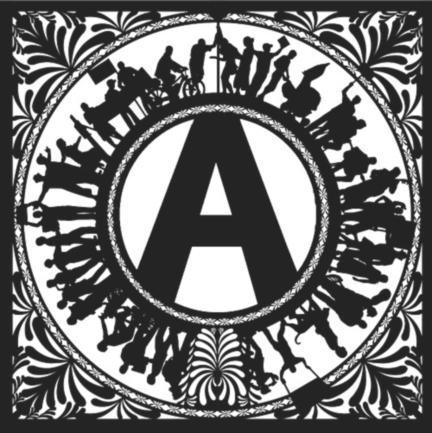
A guiding philosophy into the nature of relationships and social structures. Anarchism opposes oppressive power: authority, hierarchy, domination and violence in all social settings. In its place, it promotes autonomy, participation and mutual aid
Instead of power being a symbol of authority: controlling others for personal or elite gain, anarchists want power and self-determination to be an innate feature of all people. The power to start something new. The power to share responsibilities. The power to draw lines and to be yourself. In this respect of power, people have new incentives to work with each other instead of against each other, and fully distribute opportunities without hoarding necessities and renting them out.
Instead of people above us giving demands that we have to follow or risk starvation or eviction, anarchists want dialog, consent and free association to guide how affected people arrive at decisions and manage overlapping possibilities.
Instead of rigid systems that we have no choice in, anarchists want associations of different types that form, grow and cease as the people involved decide, like the seasons. Anarchists want to let people define themselves according to their inclinations and desires, not what is imposed on them and expected from them.
Instead of ceaseless competition for survival, anarchists assert the power of cooperation to be a more effective and lasting tool for sustaining each other and the world we share.
Instead of asking for the approval of authorities, anarchists cultivate direct means of overcoming social control, defending communities and building the change we need.
It boils down to a unique and whole variety of freedom and how this is shared so it can enable people in significant ways. Anarchy comes down to people free from oppressive boundaries and fulfilling their common interests how they want to. Obviously, these are bold things to strive for which get lost in translation. But there are ideas outside of these that reinforce the need to bring them into reality.
Laying The Way
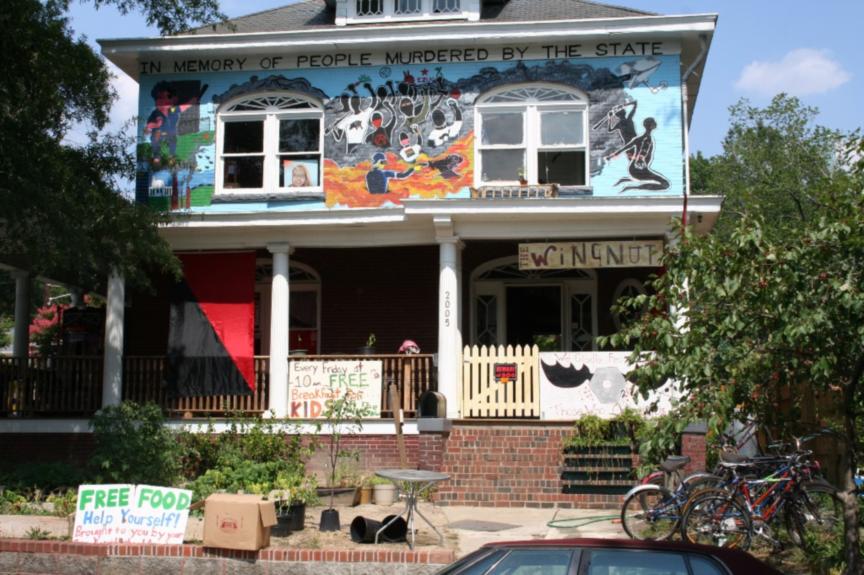
The best way to see this kind of world is to identify the specific oppressions of today and build ways to subvert them
Explaining anarchism correctly starts at the obvious and works toward related issues with background on the alternatives. Anarchists are popular for their hatred of the state, but its not as simple as that. We oppose everything that builds itself up through coercion, hierarchy and the normalization of authority.
In addition to the state (a coercive relationship that mediates and protects other institutions), we also oppose capitalism and class society (because it requires hierarchy, exploitation and domination), patriarchy (the social roles of women and non-males being subservient to men and their underlying status), queerphobia (or homophobia and transphobia, the bigotry and social attitudes against gay, lesbian, bisexual, transgender, non-binary and non-conforming people) white supremacy (the racist systems of ethnic inequality and oppression that are variously enforced) the police (the upholders of white supremacy and class society through force), ableism (the oppression of people with physical, mental and learning disabilities) and ecological ruin (the capitalist exploitation of ecosystems at the expense of the earth).
While generations have lived in the shadows of these things, many people help reproduce these without thinking about them. And at the end of the day, each one of them abuses us all. Racism breaks fruitful bonds between people across ethnic lines. Patriarchy reduces everyone, including men, down to mindless drones to obey rigid gender roles. People with mental disabilities are pushed away and left homeless. The state enforces the will of the bank through the police to evict poor families. Climate change continues to mount and become a heavier burden for more ecosystems and future generations.
There is simply no way to win any actual, lasting freedom in the global-spanning arrangements of today if we don't significantly wipe them out from power. So the question becomes how to go against such a daunting mass of toxic relationships. It quite simply comes down to planting the seeds of cooperation and mutual aid while nourishing them for everyone.
Let's start at home. A single person can relay the idea to a few friends, and in time they can transform this idea into a solid effort to revitalize local power. Neighborhoods and towns can channel everyone's input into councils at this very moment, and guard what they make with people capable of defending others.
Households can share responsibilities around the home and uphold personal accountability. City residents can start guerrilla food banks, community gardens and daycare collectives. Working people can form unions and alliances with other unions around a shared desire to be free from toil. Anti-fascist groups can protect vulnerable communities from white supremacist mobilization. Workshops can share skills that are useful for different situations. Squats can bring life back into homes left to rot by landlords. Guerrilla maintenance crews can repair homes and streets left behind by the state.
Every one of these contributes to negating coercive forces and deepening the roots of autonomy, while international struggles can reach people across borders and expand solidarity globally. In time, with good coordination and personal direction, people can reach a point where their own strength topples authoritarian structures.
Of course, there will always be someone on standby to call these ideals "utopian" or "good on paper", but how do their ways that "work" which cause assimilation into abusive relationships stack up to amplifying what we're capable of ourselves? What genuine good is there in having thick social filters between the individual and their interests?
There isn't a perfect answer to the question of making this our new reality. Some strive for unanimous revolution in the light of these ideas. Others believe in simply negating all social constraint and living as freely as possible right now. But undoubtedly, a free world requires a series of free actions: a diversity of tactics connected by a unifying goal. Getting face-to-face with situations and building strong relationships will take precedence over any pre-determined formula for massive change. Moreover, we will go in all directions simultaneously.
Maintaining What We Make
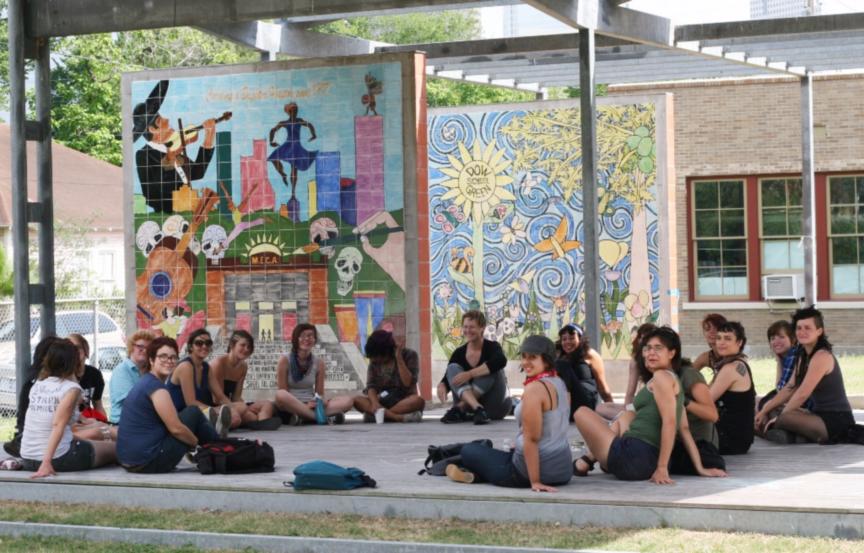
A truly free world has to have a strong social adhesive to hold itself together
Authoritarian revolutions failed by having their systems upheld by gunpoint, which just rebranded oppression and incentivized doing something different. To make sure we really have a world of our own, we have to entrust every single individual to uphold it. But how do we actually do that?
We have to end the state, capitalism, patriarchy, white supremacy and other coercive relationships in a way that makes sure they never come back: We have to foster an anti-authoritarian culture that resonates on every level with individuals. To cultivate social habits that show people that acting in a cooperative, egalitarian fashion is far more desirable, enduring and mutually beneficial than coercing people and setting yourself up to be excluded or overthrown.
In a world without money and toil, its useless to rent people out while someone on top rakes in the profits. Neither person has a tie to any system that reproduces such behavior, so they can funnel their time and energy into mutual interests, like producing goods to share with others or tinkering with a project while owning the necessary tools collectively.
In a world without a violent state apparatus, there's no point in having police or prisons around to ruin or end lives. Communities can implement their own terms of participation using consensus and uphold them appropriately. Conflict can be healed with deliberation to bring about social cohesion for the personal development of those involved, instead of systematic vengeance born out of clouded, often racist macho anger.
Its all about changing dynamics and repositioning our sense of importance. People today keep going into work and obeying laws because there is priority implanted in them, not because there is any direct worth that isn't just tied to gaining a sliver of the week's livelihood before its exhausted.
There is nothing written in nature telling us that fixed interest rates, wage labor, daily emotional abuse and forced civility are necessary or beneficial to anything beyond what exploits living things and depletes the environments they live in. The hoops to jump through being eliminated, we only have what we were searching for this entire time.
When our own self-determination is the mode of accomplishing tasks and living among other people, in the absence of manufactured friction between groups and individuals, systems and practices exist because people have chosen to uphold them; because empathy and mutual interest act as the only incentives — not because we're forced to choose between fearful submission or brutality and death. This world would exist because people like it and want to keep it.
Starting

There is no right way to start, but there are ways to protect everyone's involvement
Becoming active in working toward these is as simple as expressing that you are. Everything described is a reflection of how life is inclined to be without oppressive restraints, and it will be interpreted in as many ways possible with people of varying skills and capabilities doing what they can. Don't ever think you have to hold yourself to anyone else's take on anarchism.
Like councils and ad hoc direct actions, every path offers a significant boost for everyone elses' potential. The importance is not in the details, but in how committed it is to developing genuine freedom. That said, it isn't a bad idea to have some factors in mind to help guide you in what form your activities take and getting the most out of them.
Assess yourself as an individual — Look into different anarchist ideas, find which ones strike you the most and what tactics you think can successfully translate them into reality. Think about what the tactics need from you, how much energy you will put into them, the emotional and mental strain you're willing to endure for them and what you're willing to risk for their successful execution.
Build relationships — Get your friends and loved ones involved, or get yourself acquainted with like-minded people you can trust, who will have your back and who can help you out when you're in trouble. Collaborate on things that build familiarity with the ideas you are striving for, have regular discussions about what you should all be doing and take care of each other.
Define your structure & goals — Advance your relationships into associations, develop a structure that everyone can agree on, but one that can facilitate the goals everyone shares. Consider what the size of the association will be, what decision-making methods you will prioritize and the practices to maintain an anti-authoritarian culture.
Define broader connections — If you will make connections with other groups and create networks, think about how formalized these alliances will be, how much time will be spent on the broader work compared to the local work. Talk about what should be done to keep people accountable, how to extend an egalitarian ethos and decide on actions that are specific to the network or the local group.
Practice security culture — Make sure that the people you are communicating with are the only ones listening in. Use secure, audited messaging software that keeps data out of third party hands, avoid explicit details about times and locations when possible and don't leave anything incriminating behind, e.g., burn written notes when no longer needed.
Preface success with the present — Everyone should ask themselves happens when autonomy is won: if you're going to transfer the culture of your association into your community or if you will reinvent your practices for the situation you find yourself in. Use your time in associations to get used to acting in anarchist environments, use this familiarity to reinforce what you gain control of and adopt free association and mutual aid as the social adhesive.
Keeping
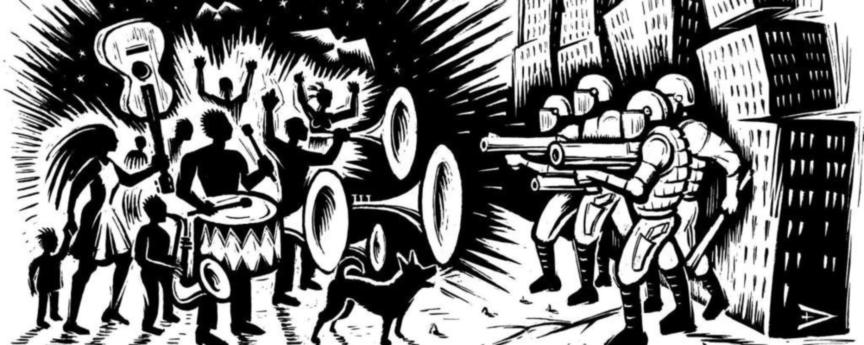
We have to let go of fear and make a promise to ourselves
Life doesn't give anyone a perfectly rounded idea of society. We inherit what those before us went along with, and breaking such molds are up to the conscience of individuals in their time and place when they've woken up to being exploited. Anarchists have a special responsibility to offer those people a reason to extend their frustration to every corner of life. There is no "right" way, but we have a sense of better ways to go after.
We gain far more than we lose when we dismantle every coercive force. It isn't a radical idea to suggest that as easily as we can run our everyday homes, we can extend this same capability to the world we live in. Police, bosses, patriarchs, nationalists and other social abusers are nothing but constant obstacles without innate worth — they are given credulous importance that many are stripped of seeing through.
People are often so invested in making ends meet and scraping together any semblance of joy and peace of mind, that they forget this world that they live in: Entire species around them act according to self-organization and symbiotic relationships founded on no hierarchy. Historical anarchist societies holding up as long as they could against authoritarian enemies. Liberatory undertakings happening at this very moment in unknown towns.
Anarchy is just the pattern of all known existence, and compressing it into a philosophy with a name hardly does its persistence justice. Meanwhile, the litanies of authority and compliance to abuse have ground humanity down to a nub devoid of the piercing capability for empathy and generosity, but perfectly equipped to do the worst harm to everyone in constant struggle.
So after having the general ideas down, and knowing how to hold everything together, what else do we need to do? What more do we need right now that fully prepares us to take control of our lives?
We have to promise ourselves that we won't let the right time slip away from us, and we won't waste opportunities to drive a wedge between domination and what matters in our lives. This doesn't mean charging straight into battle as others might, but it does mean connecting one's own skills and abilities with the broader struggle. Whether you're cooking meals, watching people's children or offering emotional support, you are contributing to the same effort as everyone else.
We can't always promise ourselves victory, but we can promise that we will grab onto the opportunity and assert our power against domination. What we do will provide an example for generations ahead of us, should we have to retreat and bide our time. Its up to everyone to reshape life in the way we're already accustomed to: In the image of friendship and the celebration of possibilities, let's come together and combine our strength for a truly free world!
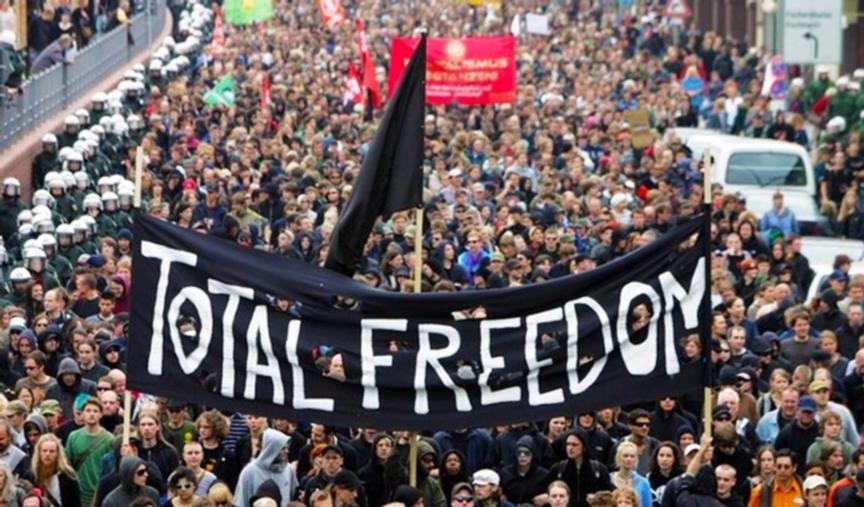
For More Information...
Peter Gelderloos' Anarchy Works · Crimethinc's To Change Everything · The Anarchist FAQ · Contact (email)
Spread the message, use the image! Makes for a good poster or sticker
